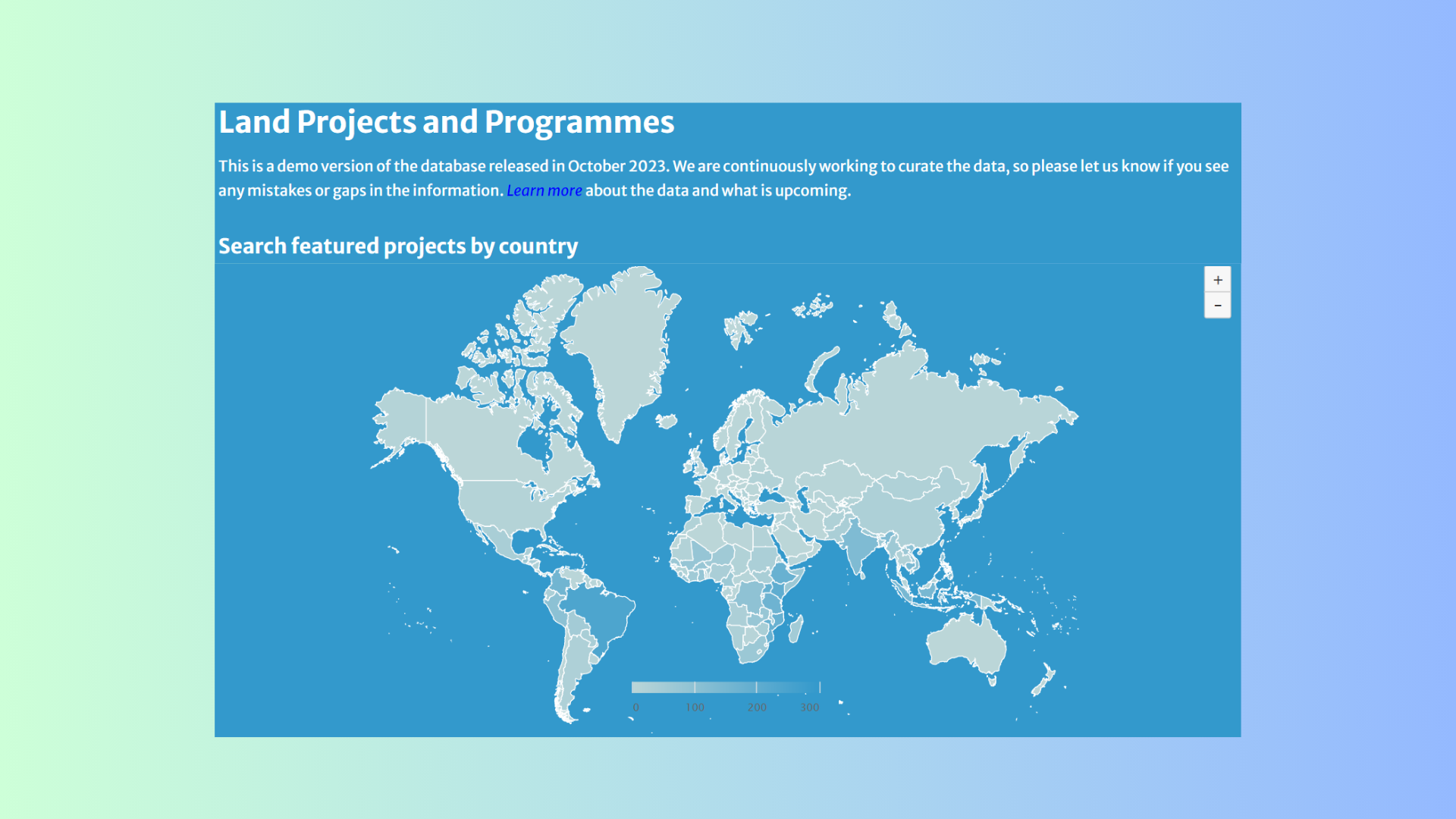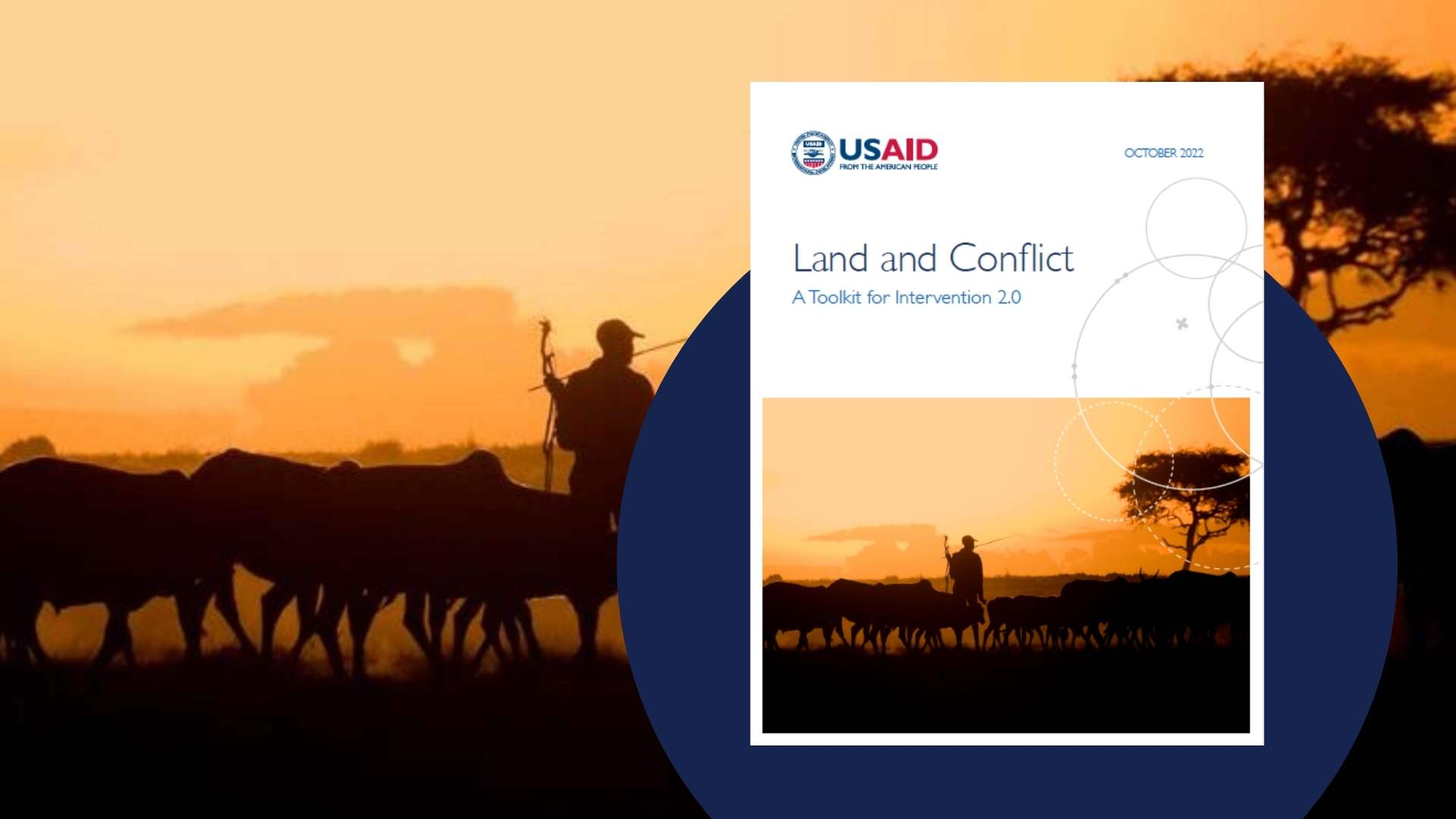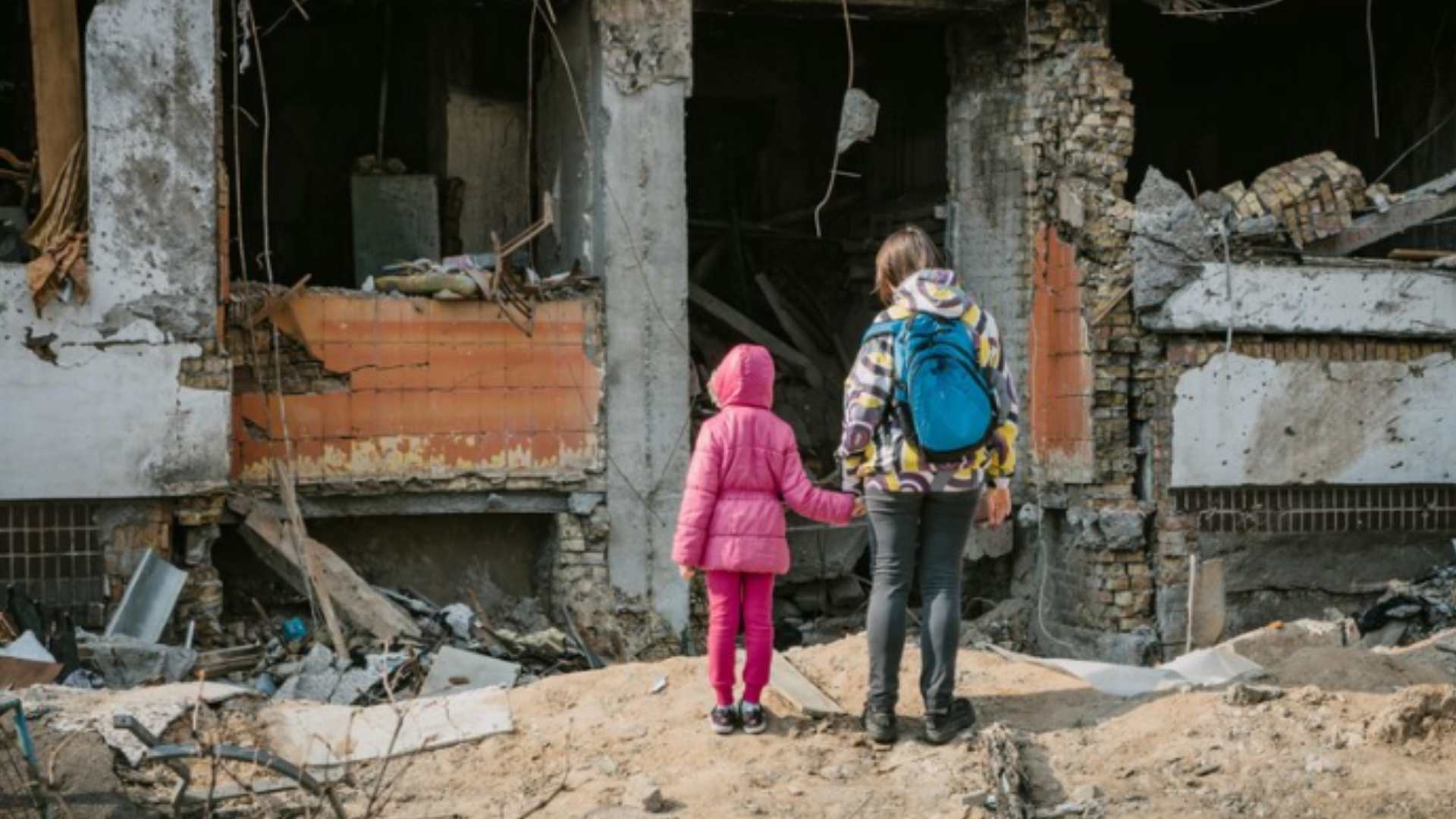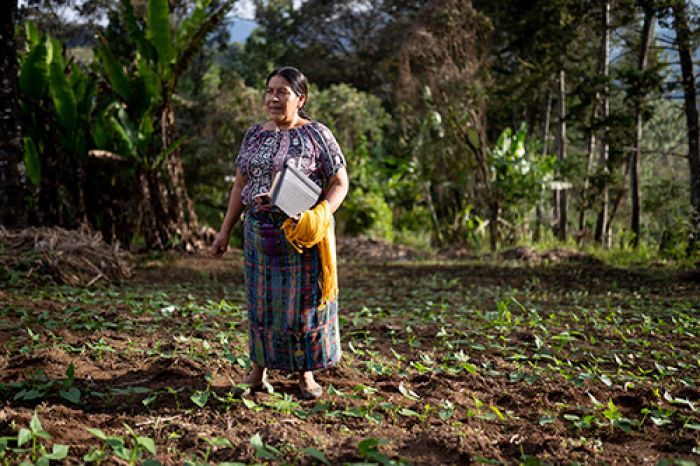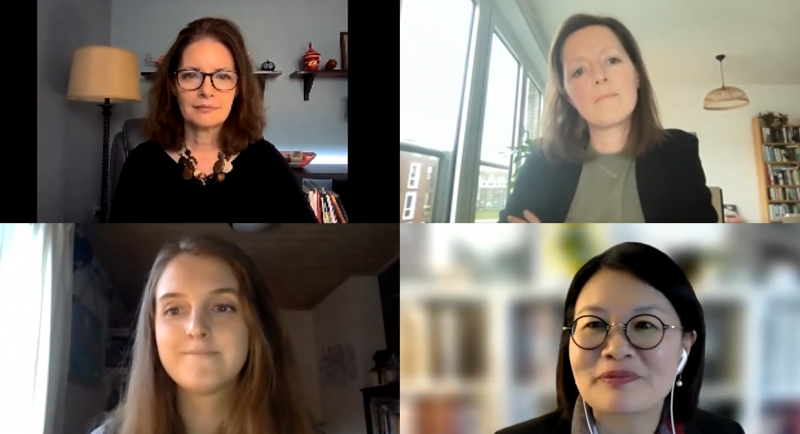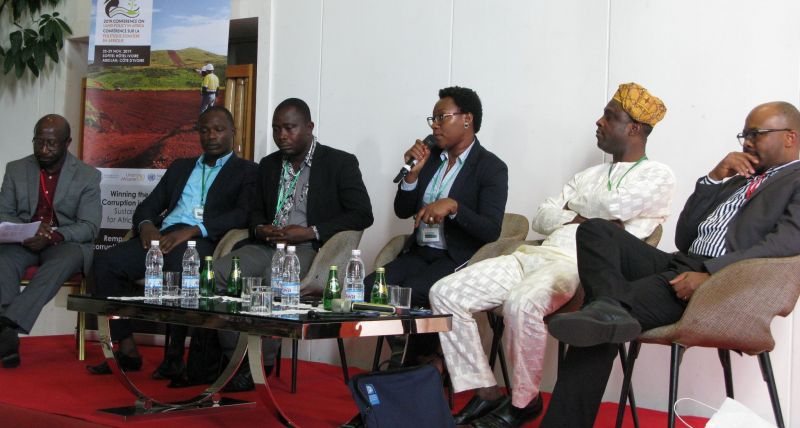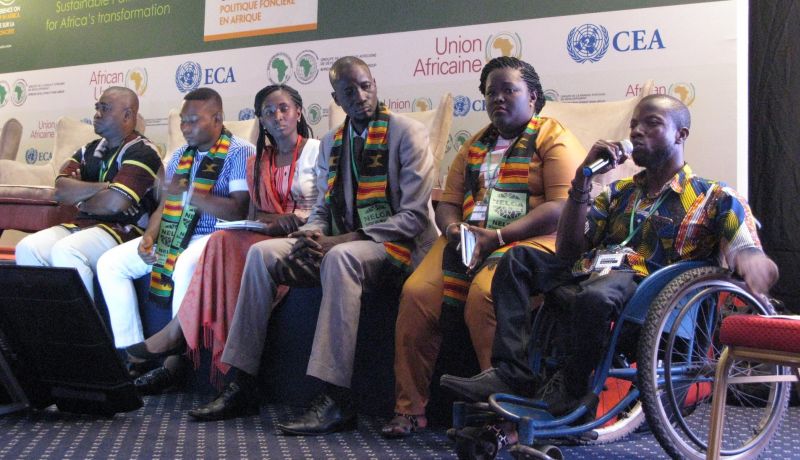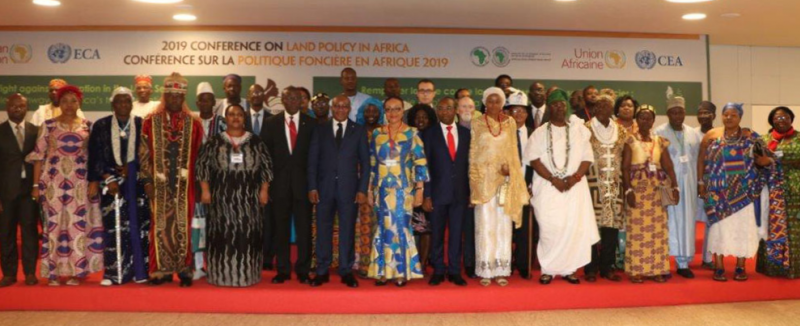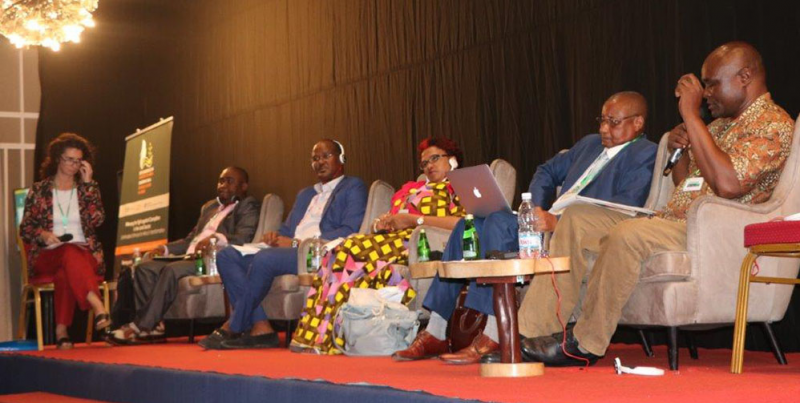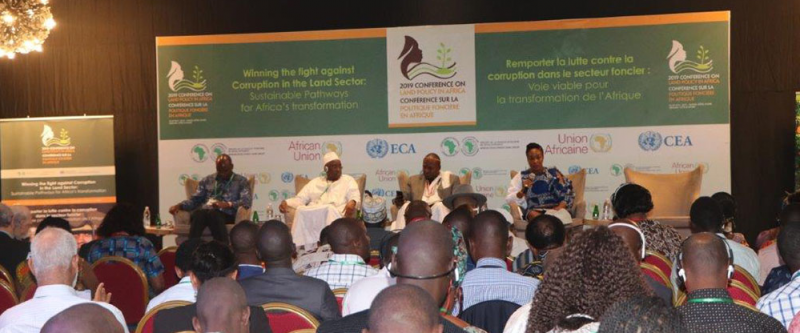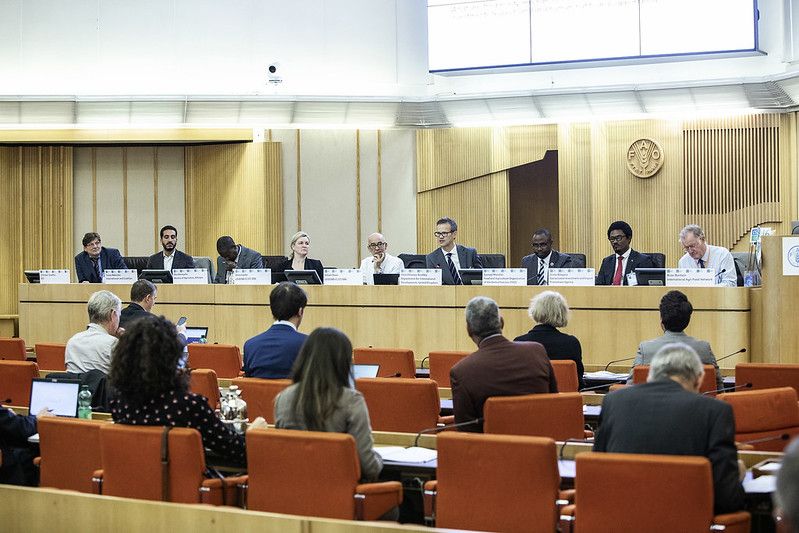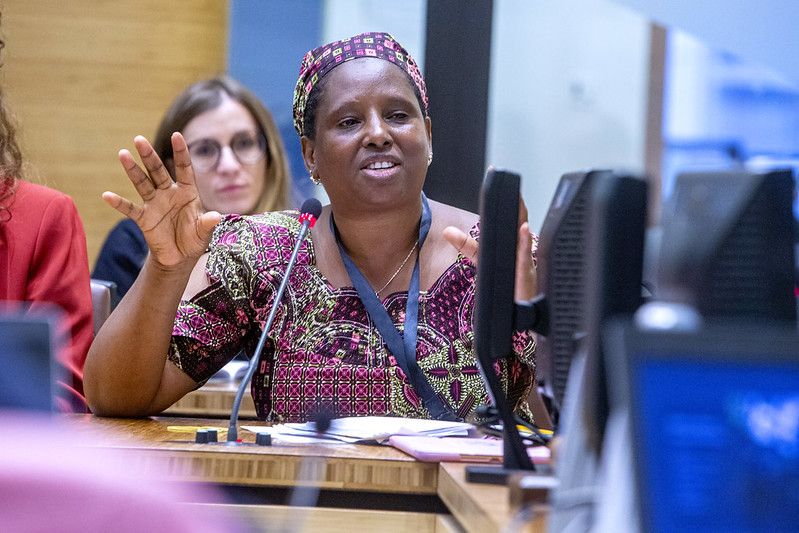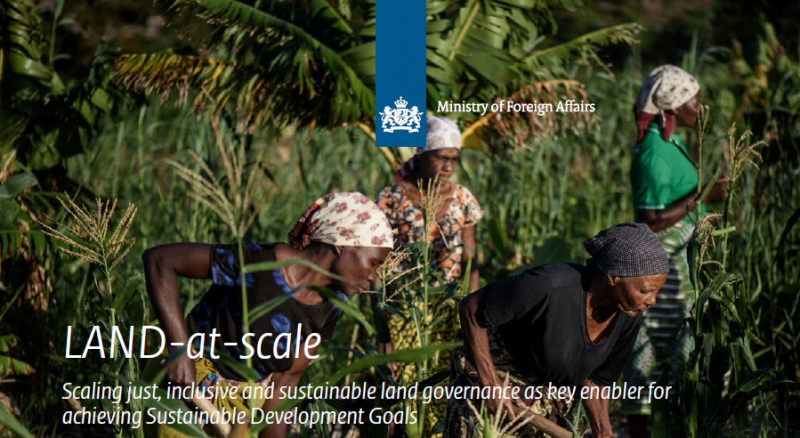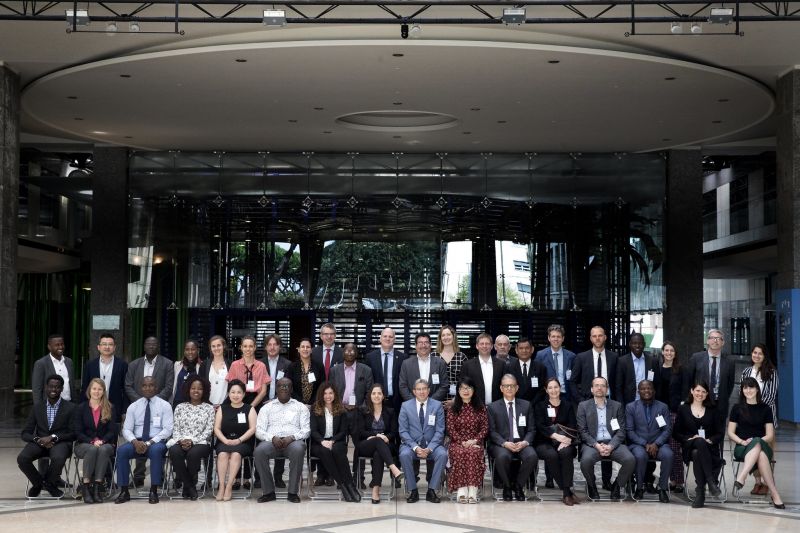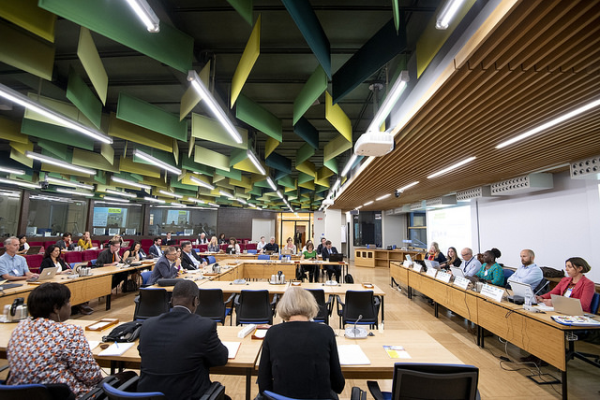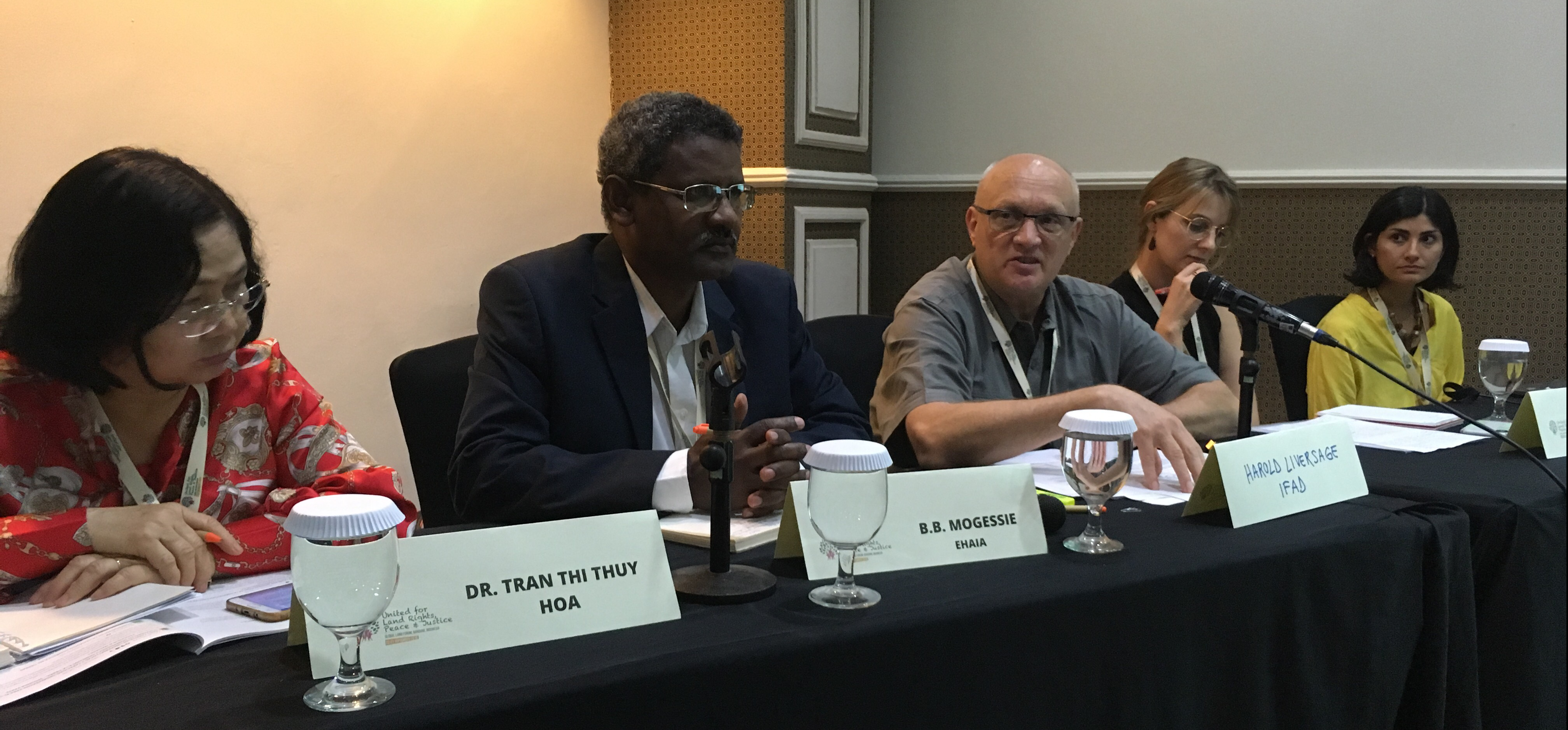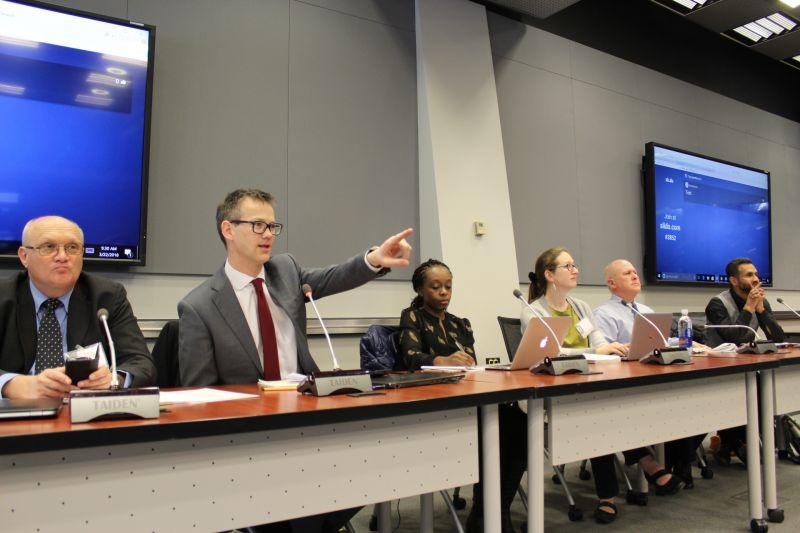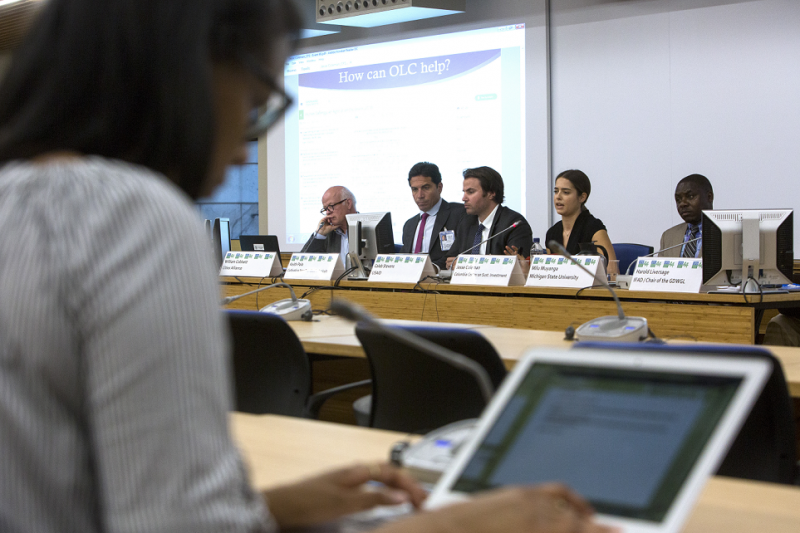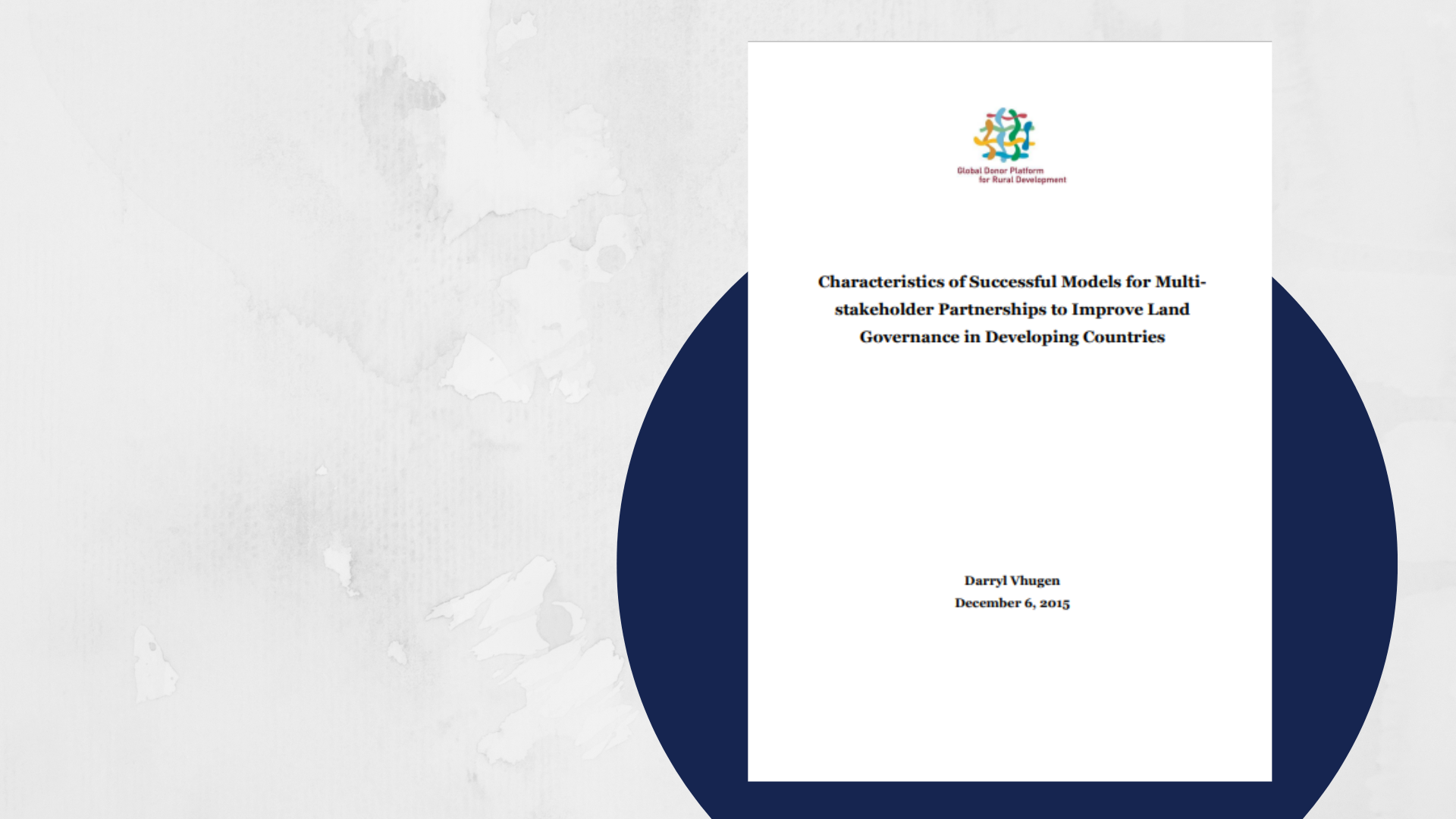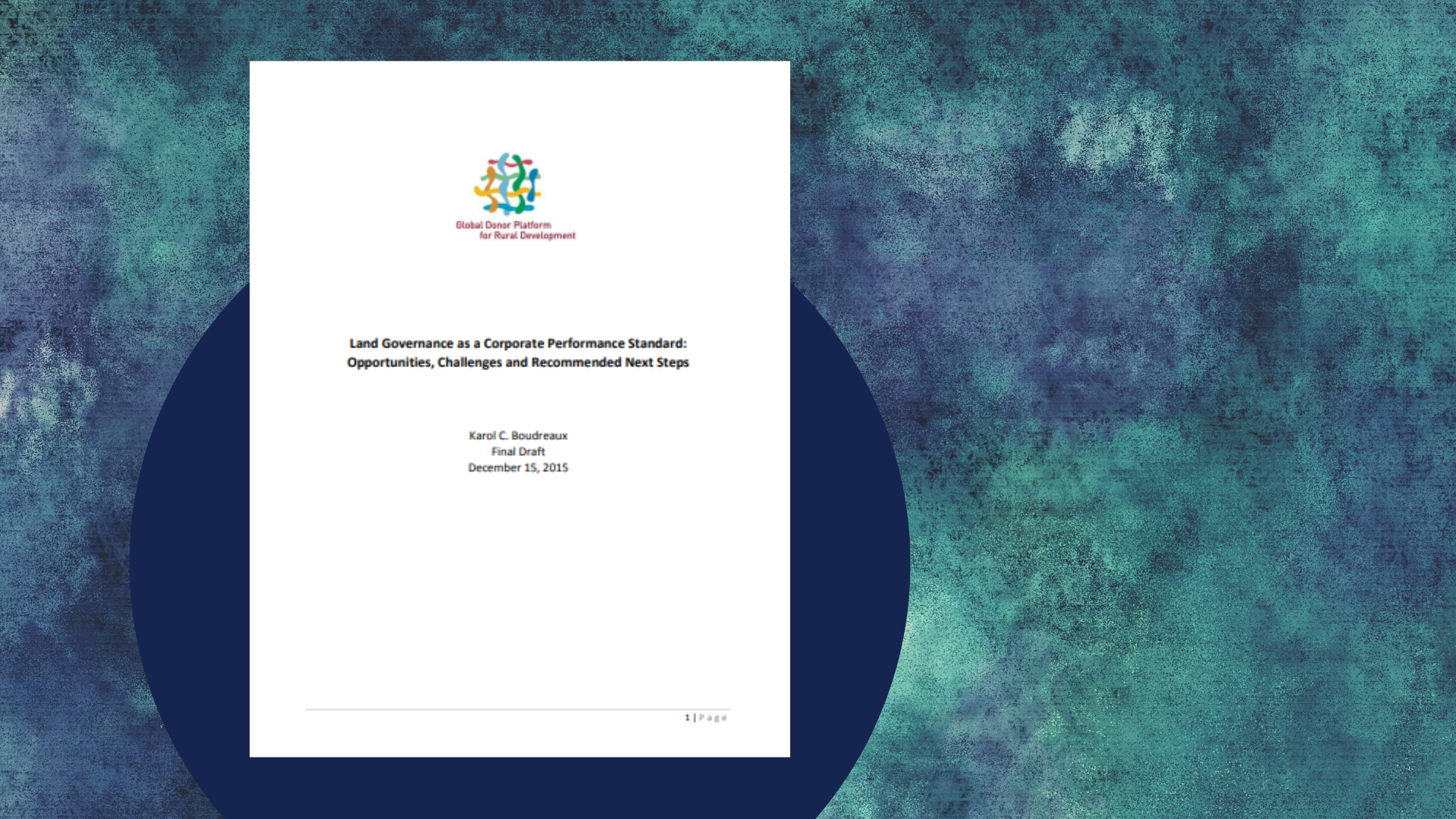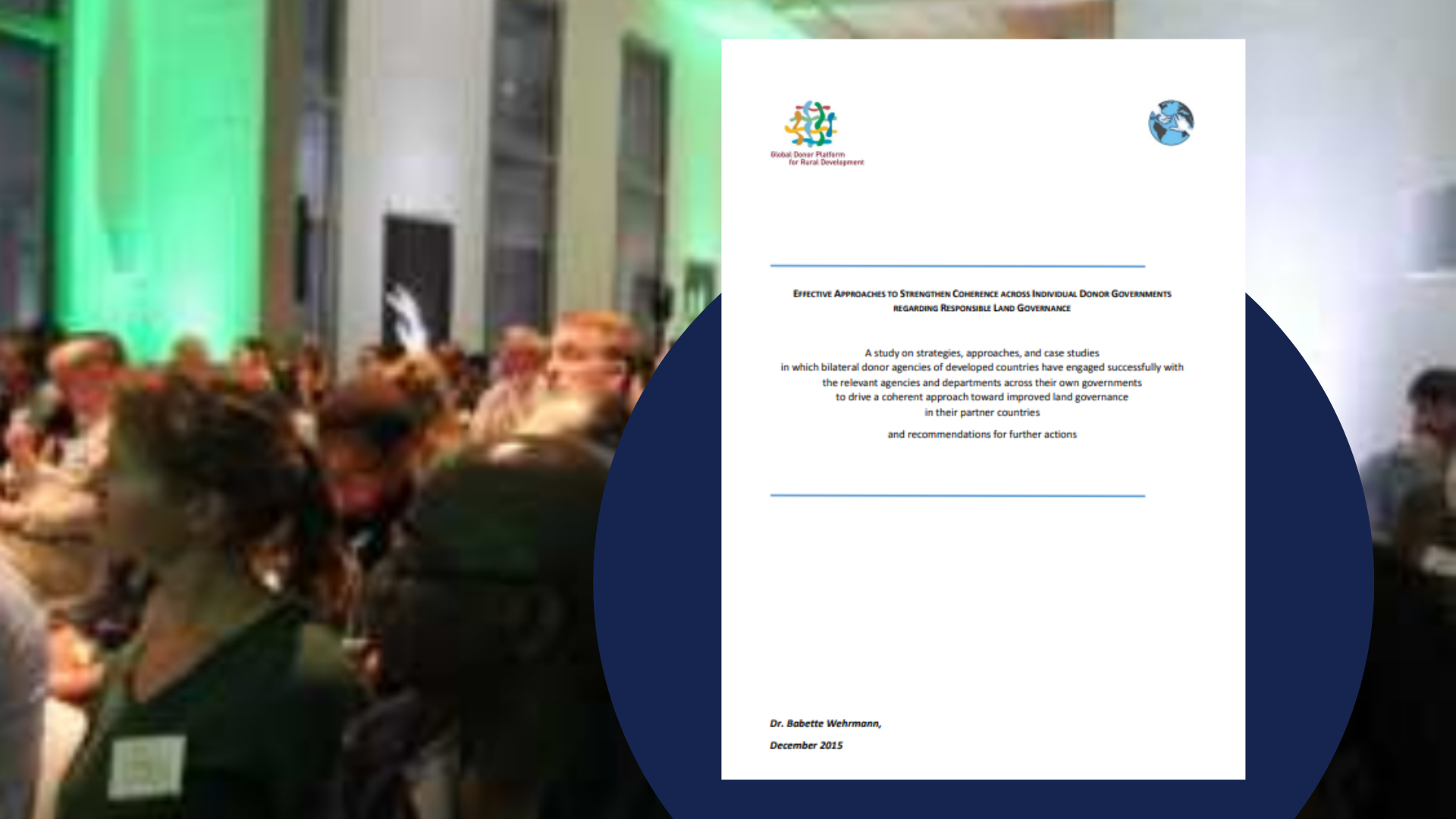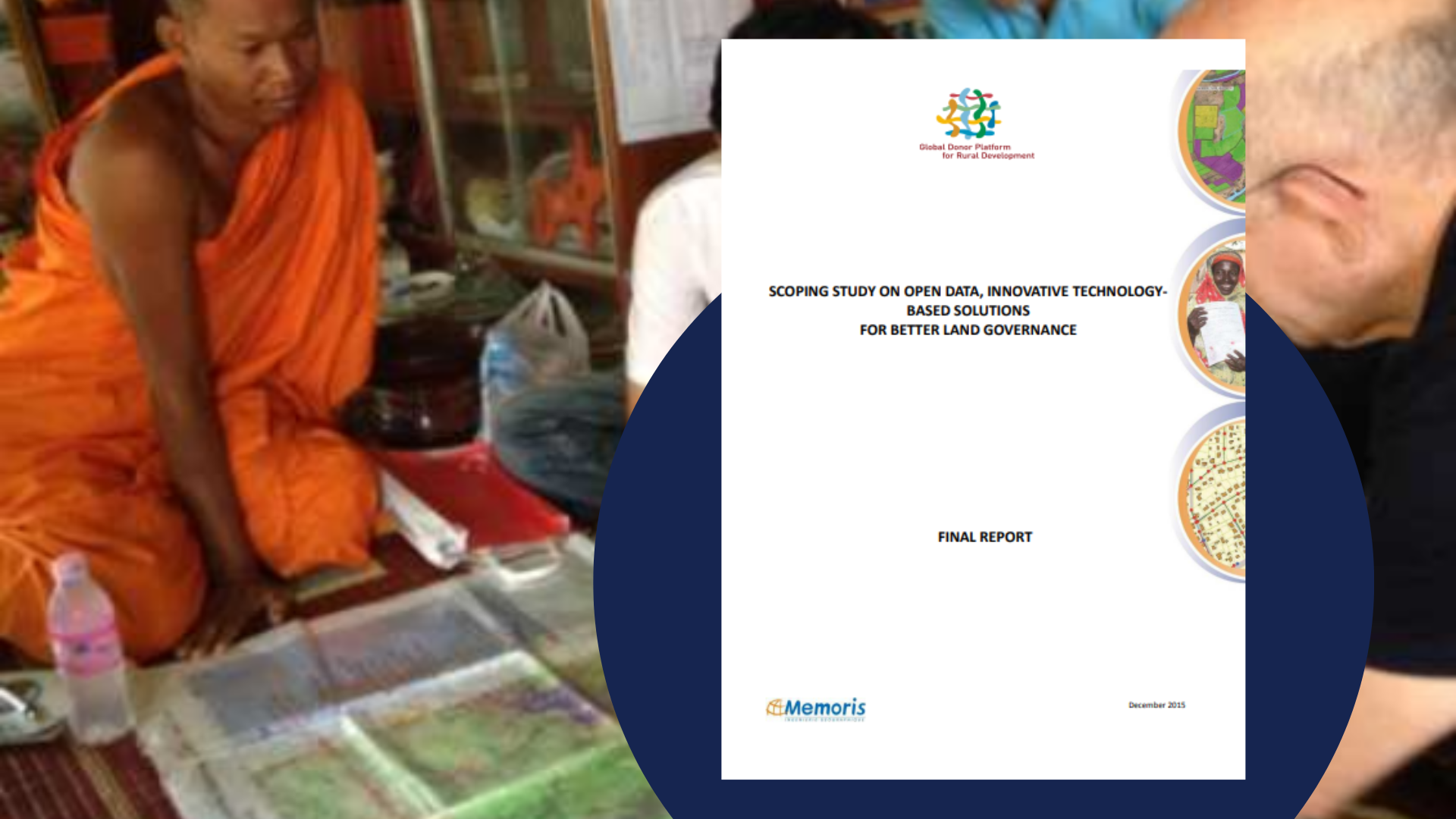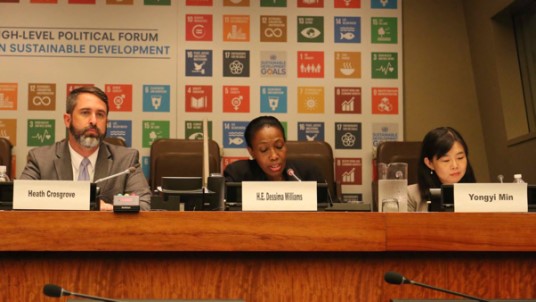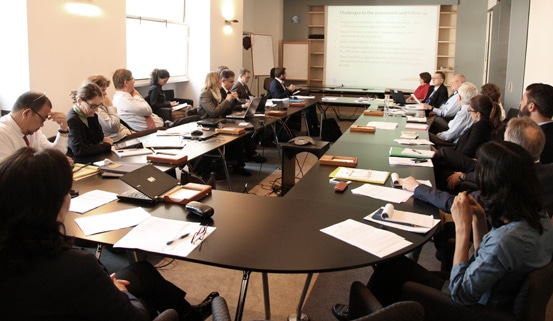Are we on track to secure tenure rights and establish effective and transparent land governance systems by 2030? This broad yet fundamental question was the point of departure used by the Global Donor Working Group on Land (GDWGL) in its session at the World Bank Land Conference 2019, held this Thursday in Washington, DC.
Links
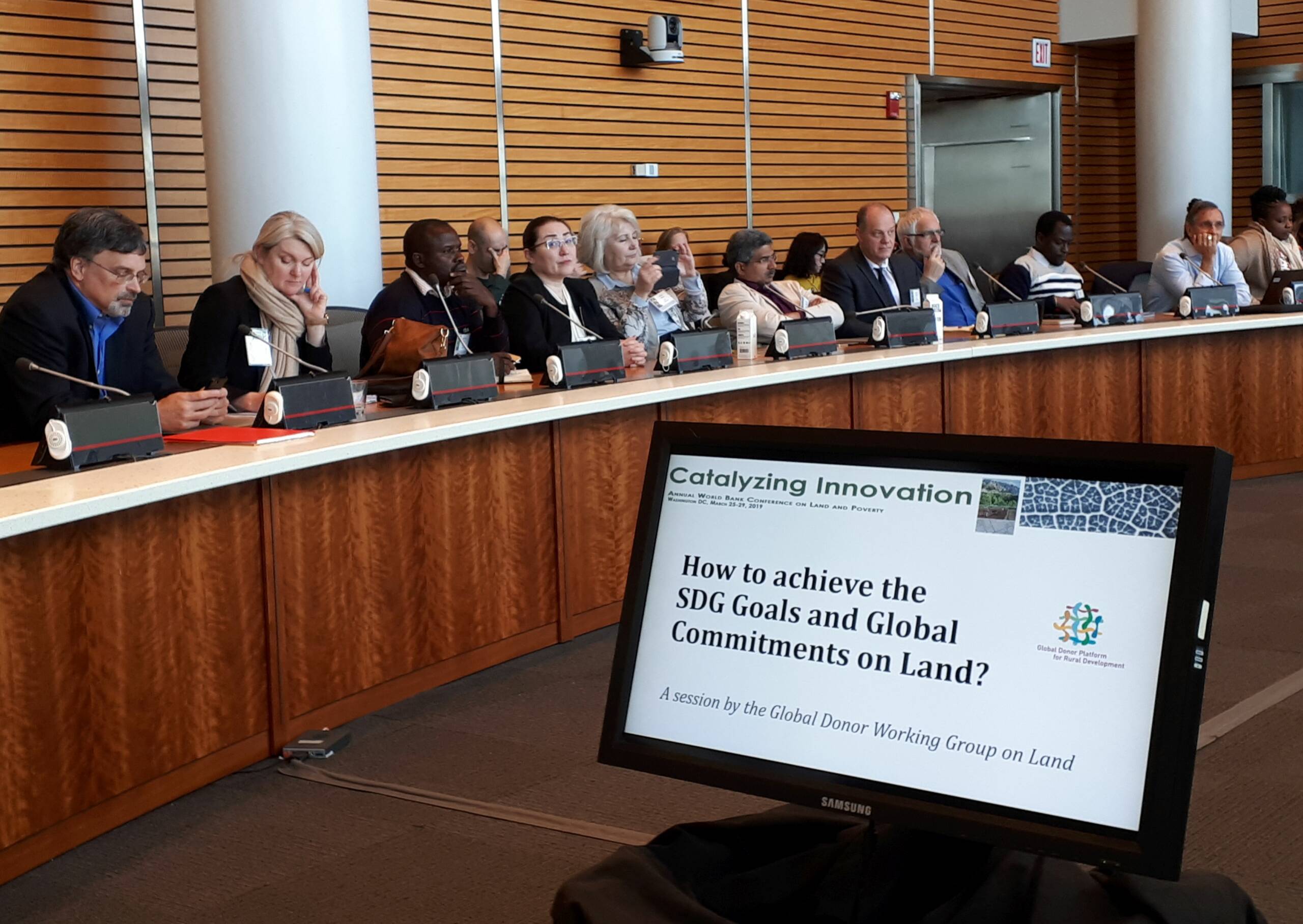
The session, facilitated by independent consultant Clarissa Augustinus, encouraged participants to provide comments and ideas on how the international community, and particularly donors, can help promote different or innovative approaches to meet the challenge of securing land tenure for all men and women by 2030. Even if the solutions are usually due to a set of complex factors (e.g., politics, the time it takes to coordinate with different stakeholders, the need to consider the local context, etc.), many appreciated the dialogue and several actionable ideas were proposed.
How do we know we are making progress?
The chair of the GDWGL, Chris Penrose Buckley from DFID, opened the discussion by presenting a brief overview on the availability of land tenure security data and what this says about progress. “Only 10% of rural land in Africa is registered” is a widely used statistic to highlight the scale of the challenge even if it is, at best, a good estimate. Some data exist, but it is very patchy. All this illustrates the data gap that has made it hard to set global targets and monitor progress. But there is traction in some areas. “New data to monitor the SDGs and other data sources (e.g. Prindex) that can help promote reforms needed to achieve the SDGs, are now coming online and will enable us to set targets, monitor progress more effectively, and deepen national policy discussions
Do we need a global target on land linked to the SDG indicators?
This question was asked in a live poll and most participants in the room (75%) agreed that a global target would help focus efforts. Mika Torhonen, land tenure specialist in the World Bank, argued that it is important to “get baselines sorted out and agree on something jointly which is more concrete than tenure security for everyone”.
However, divergent perspectives from other panellists also resonated in the room. “Global targets are meaningless if they are not built from the bottom up. Each country should have its own targets”, defended Mike Taylor, director from the International Land Coalition. “The target 1.4 says ‘all men and women’, why should we aim at 80%?” noted Jolyne Sanjak, land expert at Tetra Tech ARD. For Fridah Githuku, from the NGO Groots Kenya, the issue goes beyond that of setting a target. “We often assume that all stakeholders are equal – we need to understand the power inequalities and different capacities of those who seek to secure their land”.
- What do we need to do differently?
Using an interactive online tool, participants voiced their ideas to donors to help accelerate progress towards global goals and commitments: - We are largely very good at talking between experts but we could do more in talking directly to citizens about land issues and engaging more actors
- Create stronger alliances with private sector and civil society. Make legal land a condition in value chains.
- Put in place a joint facility to identify existing practical and efficient solutions and disseminate, go to scale
- We need a stronger commitment culture beyond coordination
- Progress globally will result from bottom up national initiatives, driven by local advocacy and adoption of meaningful national reforms and their effective implementation on the ground. Funding should be directed to supporting these civic and public sector efforts
- Acknowledge role of politics in land issues and develop more research in what it means to create asset-based democracies including its implications for construction of societies and their institutions
Key take away messages
Peter Sidler, programme officer at the Swiss Agency for Development and Cooperation, offered key points highlighted in the discussion:
- Multi-stakeholder platforms are very relevant. The question is how to form and support these
- Cultural and social elements of land are very relevant for effective interventions
- There are questions on the amount of funding: perceiving as enough depends on where you are standing
- Political will is just as important as funding: “we need a Marshall plan for political will!”
- Question on how to foster that political will: one element is certainly coordination at country level, donors promised to be working on that
- Clearly, advocacy efforts need predictable funding and partners of advocacy need to question their approaches
- More strongly include CSOs and private sector in the politics of land
- Research on the institutional aspects of land has not yet received the attention it deserves
- There is urgent need for financing innovation: basket funds, working with social enterprises
- On conflict and land: here is a big nexus where the donors can work on

